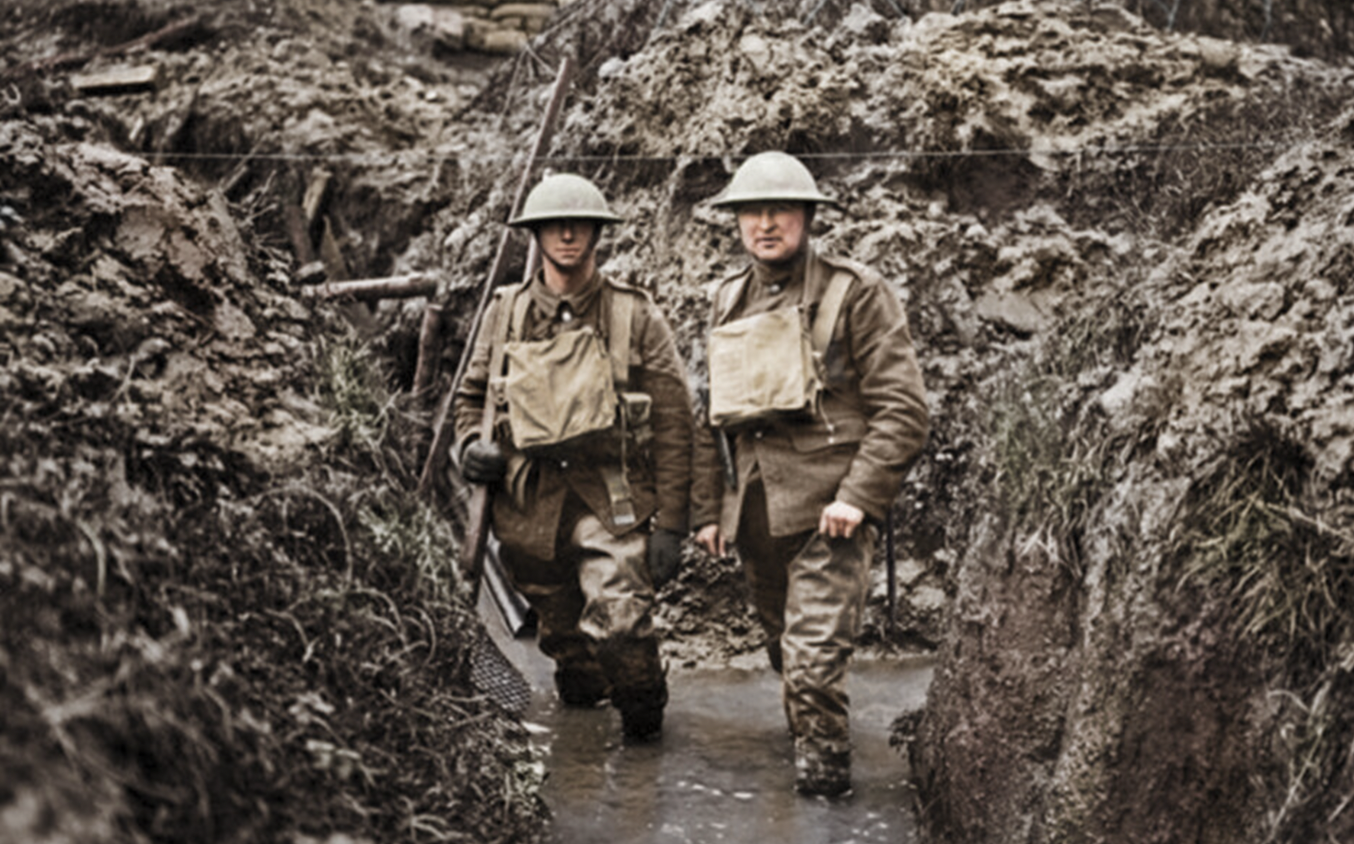One of the world’s foremost psychiatrists specializing in PTSD, Dr. Bessel van der Kolk visits Big Think to discuss the history of the disorder, its varying effects on sufferers of all ages, and forms of treatment that can “help people to come back to life.” To understand PTSD, says Dr. van der Kolk, you have to understand the nature of trauma and the ways in which traumatic triggers can vaporize anyone’s joie de vivre. His latest book “The Body Keeps the Score” was written to draw attention to how traumatic disorders can be avoided.
Bessel van der Kolk: PTSD was a diagnosis that my generation first created in order to remind the VA to take care of veterans and to really say to the VA these guys are messed up because of Vietnam. And initially people said these guys were always messed up; it must be some other thing. And the way that we organized the diagnosis was around the issue of memory. About that you have flashbacks to witnessing people getting killed, to the horror stuff that they saw in the war. That is not really the primary issue that people came in with; the issue that people came in with was that they had a very hard time getting along with other people, not blowing up at people, becoming scared and frozen, having no feelings for their kids, feeling numb with their girlfriends and general problems with engagement with other human beings and getting triggered and becoming very angry and very upset and very out of sort.
And the memory issue was also an issue but it really is not what people suffer most from, it really is about having difficulty feeling alive in the present, feeling engaged, feeling a sense of pleasure, of joy, of even exuberance at the right moment of just feeling like boy it's good to be alive. And in the years since that time we have understood a lot about what happens in the brain that interferes with the capacity to feel alive in the present.
The primary symptoms are becoming upset, becoming triggered, they're particular sounds, smells, images, bring back states in which people act again as if they're being traumatized. What happens in kids is it's not so much memory issues but becoming upset, becoming angry, being assaultive, being oppositional, not trusting people, unable to concentrate, to pay attention, to engage in anything. And particularly when you're traumatized as a kid, kids are very egocentric and they think that the universe is all about them; that's what it's like to be a kid. And so if terrible things happen to you you feel like this is happening to you because you are a terrible person so this becomes part of your identity. I'm a person who makes bad things happen and I'm also a person who other people cannot possibly care for because people who were supposed to take care of me are not taking care of me.
And so kids develop something more like what we call developmental trauma disorder, in which it invades very many areas of functioning. It doesn't mean that adults who get traumatized may not also have those feelings. Often times traumatized adults often feel ashamed, blame themselves for what has happened to them. When they get raped they say I must have done something wrong to make this happen to me. So the issue of shame and blame is also a very big issue for adults.
Something like three quarters of the U.S. population experiences traumatic events and may actually be triggered by particular things. If you grew up with an alcoholic parent the likelihood that you will have certain traumatic triggers, have certain fears of intimacy, certain uptightness about getting out of control just like that parent went out of control is quite common. And in fact one out of five American women have been sexually molested at some point or another. One out of four Americans have been quite severely beaten by their caregivers. So these are common things. These are common things in the general population. And so most of us either have been painted by that brush ourselves or know people in our environments to whom that has happened and we are living with the consequences thereof. And the reason why I wrote this book actually is to not only draw people's attention to what we know, but also to really draw attention to the fact that we can do something about it and that we have learned a great deal about how to intervene and help people to come back to life.
After you get traumatized you feel defective, you feel there's something wrong with you and you hope that people won't notice. And you also don't believe that anybody can help you. And finding help in fact is not always that easy. How do you know when relationships keep failing? When you fall in love with somebody and on the third date you blow up or you become frightened or you find something with that person and it bugs the hell out of you. Your sense of compassion to yourself and other people goes out of the window. So you become very intolerant of other people, you become very intolerant of yourself and so you live in an intolerant environment. And your kids don't dare talk to you; you see them becoming frightened; you see them walk out of the room when they see you sit there. You turn on the television and you scream at people not to bother you. And this reactivity to people, this being bugged by people, this inability to tolerate other points of view, this inability to see that other people may look at the world differently than you do is a pretty good hallmark that you have something to work on and that you need to actually learn to notice yourself and to notice what goes on inside of you that makes you so chronically angry and irritated.
Anger and irritation is a very important piece. The other thing is those were the symptoms I talked about that we first saw in Vietnam veterans and that continues to be the big thing in child abuse survivors, car accident victims, soldiers, et cetera, et cetera, is the feeling of not being able to engage; that life doesn't mean very much; that my joy is gone. And then it's very easy to say I've always been like that. And then for me it becomes very important to help people to viscerally remember, to be a member of that football team in school or to play your French horn in the band or to make love for the first time or something that at one point gave you great joy now no longer means anything to you. And when those feelings have stopped that means that something is frozen inside of you. And then it's time to deal with that in order to unplug the river of life basically.
Directed/Produced by Jonathan Fowler, Elizabeth Rodd, and Dillon Fitton






